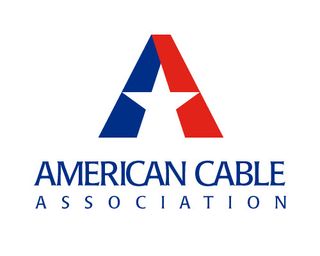ACA on Antitrust Enforcement: Size Matters

The American Cable Association is calling on the leadership of the Senate Antitrust Subcommittee to urge the heads of the Federal Trade Commission and the Department of Justice's antitrust division, Joe Simons and Makan Delrahim, to pay more attention to the impacts of media consolidation on cable bills and consumers.
That came in a letter to subcommittee chair Sen. Mike Lee (R-Utah) and ranking member Amy Klobuchar (D-Minn.) in advance of a hearing Wednesday featuring the two agency officials talking about oversight of antitrust.
ACA also said that by contrast to the larger, merged, media, its members are constrained from raising rates unreasonably or imposing unreasonable terms on customers, so need a lighter regulatory touch.
Among the issues they want the senators to raise at the hearing is how the Department of Justice plans to monitor Comcast-NBCU practices given the sunsetting of deal conditions DOJ imposed. DOJ has signaled it would keep an eye out.
ACA talked about the upward pressure that national consolidation can put on retransmission consent fees and the issues with duopoly owners being able to withhold two stations in a market in retrans impasses.

ACA said that it was encouraged that DOJ would not allow Sinclair to purchase Tribune without divesting one station in each new duopoly it would have created, and the FCC's insistence that all those spin-offs be to independent buyers, but said that is the "bare minimum" that should be required under competition policy.
It also raised a yellow flag over the Gray-Raycom merger. "We urge antitrust authorities to consider the potential for price increases as they consider mergers such as that in which Gray proposes to purchase Raycom. We also expect the FCC to consider these issues in connection with proposals to increase or eliminate the national ownership cap. As with other issues, we would urge you to ask questions about national consolidation at this week’s hearing."
Broadcasting & Cable Newsletter
The smarter way to stay on top of broadcasting and cable industry. Sign up below
ACA also said that the impact of big media on traditional video can spill over to online, something that, in another context, Delrahim and Justice made central to their unsuccessful effort to block the AT&T-Time Warner deal.
"[B]oth local and national consolidation lead to higher wholesale video prices, which in turn leads to higher retail prices. Consolidation also, however, has add-on effects related to broadband," ACA said.
"When programming fee increases make video service itself unprofitable (as they have done in many cases), cable operators find themselves less able to invest in their broadband networks. For some of our members, this has led to something of a “vicious cycle”: high wholesale video prices leads to lower video margins which leads to lower network investment which leads to degraded broadband service which leads to slower broadband adaption. And, of course, degraded broadband service and low adaption causes any number of downstream harms to inclusion and democracy. When media consolidation leads to higher prices, in other words, everyone suffers."
Contributing editor John Eggerton has been an editor and/or writer on media regulation, legislation and policy for over four decades, including covering the FCC, FTC, Congress, the major media trade associations, and the federal courts. In addition to Multichannel News and Broadcasting + Cable, his work has appeared in Radio World, TV Technology, TV Fax, This Week in Consumer Electronics, Variety and the Encyclopedia Britannica.

